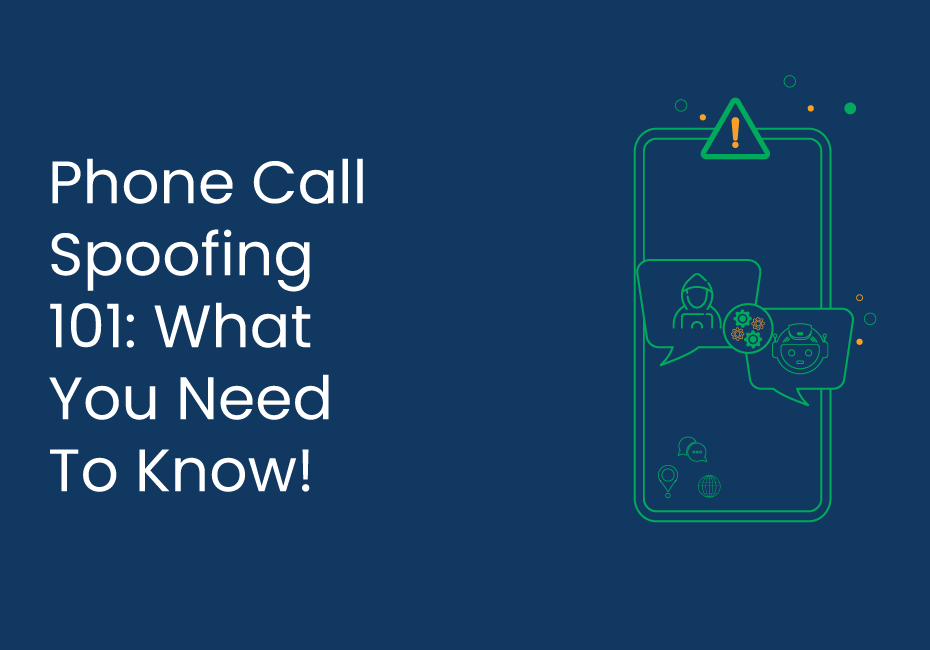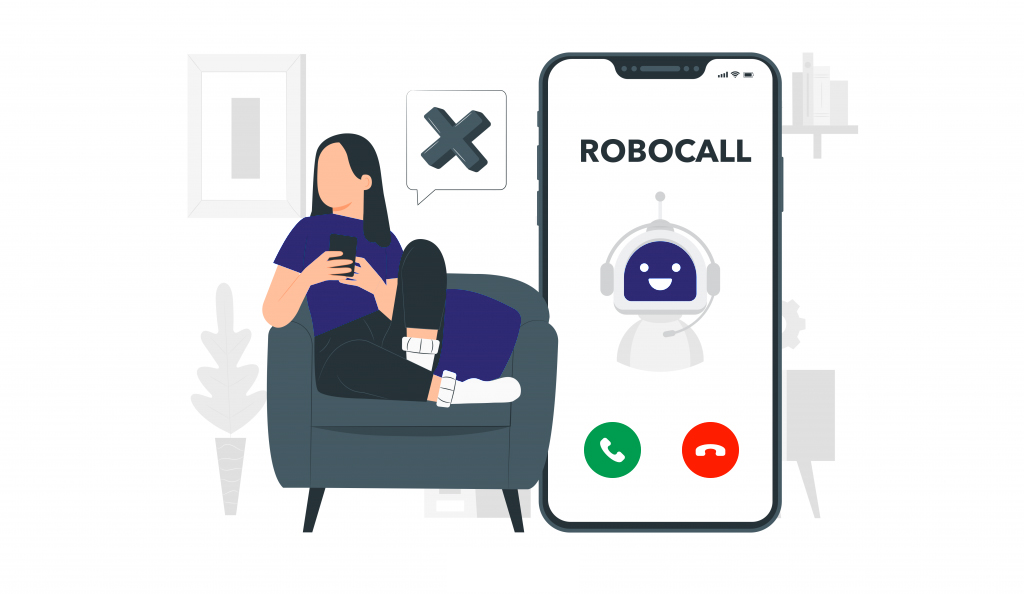Phone call spoofing is the practice of masking the phone number you’re using to make a call. When you spoof a phone number, the call recipient’s caller ID will display a different phone number than the one from which you’re actually calling.
Spoofing phone calls can be a valuable tool for many businesses, but it’s also a tactic commonly used by spammers. As such, you must be careful with phone call spoofs to avoid being labeled a spammer. Keep reading to learn how phone call spoofing works, when you might want to use it, and the tools and phone service features you can use to protect your business.
Table of Contents
How Phone Call Spoofing Works
Phone call spoofing is accomplished by connecting a phone to a spoofing application. These applications can replace the number making a call with any other phone number using Voice over Internet Protocol (VoIP) and Private Branch Exchange (PBX) technology.
The VoIP service converts the phone call from an analog to a digital signal. It’s then routed through the PBX, a service designed to configure internal phone lines within an organization. Tweaking PBX files allows the spoofing program to display the outgoing call under any number you want.
Phone call spoofs are regulated by the Federal Communication Commission (FCC). Spoofing phone numbers is illegal if performed with the intent to defraud or harm. However, the FCC doesn’t ban spoofing entirely. You can legally spoof your number if you’re not doing so to scam or harm someone.
Phone Spoofing Examples
There are many reasons why legitimate organizations might choose to spoof a phone number, such as:
- Law enforcement: If law enforcement agencies need to contact individuals, they will often spoof the phone number from which an official calls. The number that the call appears to come from will be the agency’s non-emergency call-back line to avoid giving out the official’s dedicated business number to everyone they call.
- Journalists: Similarly, journalists often spoof their numbers to secure their private phone numbers. Instead, they’ll display a separate phone number that people can call to give tips that won’t ring through to their personal phones.
- Helplines: Helplines often rely on volunteers who use their personal phones to answer calls. To protect their volunteers’ privacy, they’ll spoof the numbers so callers can’t reach out to specific volunteers when they’re unavailable.
Despite these legitimate uses of spoofing, the practice does have some disadvantages.
- It prevents people from directly calling you back. Spoofing your number makes it that much harder for the people you call to call you back. Even if you leave your actual number in a voicemail, most people prefer to simply redial the number that called them. If your customers attempt to do that, they’ll end up calling the spoofed number instead of your real one.
- It may lead to automatically blocked calls. Since spoofing phone numbers is common among spammers, the FCC now requires all phone carriers to identify the original caller ID of a call going to consumers. This is known as the SHAKEN/STIR protocol, and some spoofed numbers fail to pass the protocol’s tests. Similarly, Android and iOS phones automatically check all incoming phone numbers against spam lists and block calls that match those numbers. If your spoofed number fails either of these tests, your calls may never make it to consumers.
- It may reduce customer trust in your business. The most critical disadvantage of spoofing is how it may impact customer opinions of your business. Many customers distrust companies that spoof phone numbers, even for legitimate reasons. The practice is so heavily tied to scammers and illegal behavior that it can damage your reputation even if you’re using it legally.
How To Avoid Being Tagged for Phone Call Spoofing
If you want to spoof your phone number for a legitimate business reason, you have every right to do so. However, you need to approach spoofing carefully, or you could have your calls blocked or your reputation damaged. To spoof your calls successfully, you need to avoid being tagged as a phone number spoofer.
There are several phone system features that make it less likely for automated systems to detect that you’re spoofing your number. These tools include:
- Registered phone numbers: Registering a phone number connects that number to your business. Working with a phone service that operates under the FCC’s SHAKEN/STIR protocol allows you to register your number quickly and easily. Once your number is registered, carriers can identify it as coming from a genuine organization and are significantly less likely to mark it as a spoof.
- Do Not Call list blocks: Carriers and phone manufacturers are significantly more likely to identify a number as a spoof if they receive complaints about it. Complaints potentially elevate a number from automated to manual inspections, making it more likely that your spoofed number is recorded and blocked. The most likely reason people may complain about your calls is that you’re calling numbers on a state or national Do Not Call (DNC) registry. You can minimize these complaints by working with a phone service that scrubs numbers from the DNC list, so you’ll never call anyone who has requested that calls stop.
- Phone number health checks: Even with registered phone numbers and a DNC list scrubber, your numbers may still be identified as spoofs if used too frequently. You can monitor the health of the numbers you use to spoof calls by regularly looking them up in spam databases. Great phone system providers will give you the tools to perform these checks quickly and easily, so you always understand which numbers are healthy and which are at risk of being tagged for phone call spoofing.
In combination, these features allow you to spoof your number without risking spam labels or blocks.
Get Help Securely Spoofing Phone Calls
Spoofing phone numbers can be an essential part of a well-rounded marketing campaign. If you want to spoof phone calls successfully, Aloware can help. Find out how Aloware’s verified calling solutions can help you spoof phone numbers without risking your reputation or spam blocks.
Book your demo to explore the benefits of Aloware’s cloud-based communication platform for spoofing phone calls and supporting marketing campaigns today.





